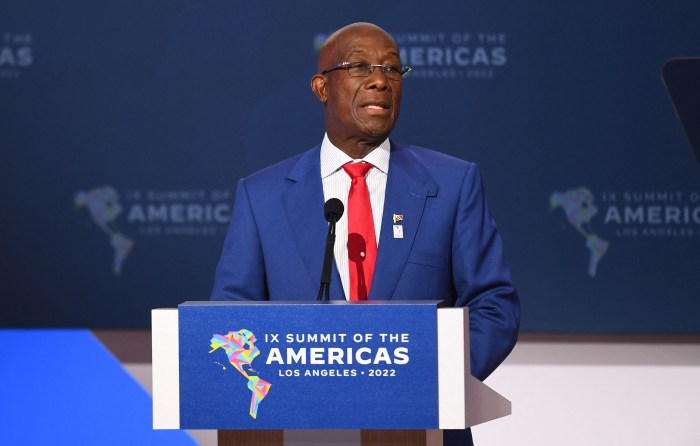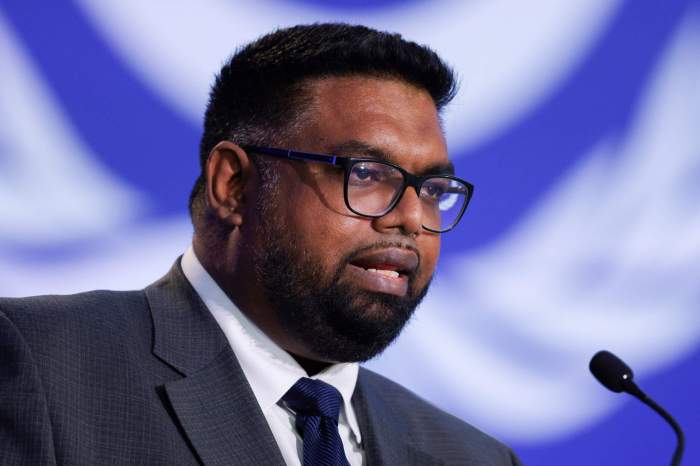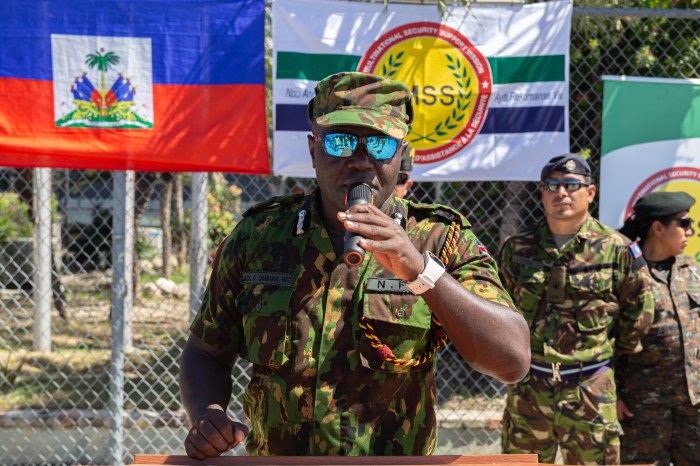From August 1999 to late November 2011, Bharrat Jagdeo ran Guyana as president, accounting for the largest single chunk of the presidency among those who headed the then governing People’s Progressive Party (PPP) during its 23 years in power that ended with defeat in 2015.
Banned from running again by a constitutional two-term presidential limit that he had ironically helped to sign into law, the move came back to haunt him in a big way this week when Jagdeo and the main opposition PPP lost a bid to have that provision on Guyanese law books scrubbed out as unconstitutional.
Six of the seven judges at the Trinidad-based umbrella Caribbean Court of Justice (CCJ) voted to uphold the two term limit for Guyanese presidents saying that such provisions do nothing to undermine local democracy and should stand.
Friendly judges on both of Guyana’s high court and the court of appeal had ruled in Jagdeo’s favor, saying that he could in fact run again, contending that only a referendum, not parliament, could limit a candidate from running as he or she pleases.
In the case of the Guyana court of appeal, current judiciary head Yonette Cummings was the only dissenting voice. The other two, now retired, had ruled against the two-term limit.
But the Guyana cabinet, through Attorney General Basil Williams appealed the decision to the CCJ and won this week, with the judges finding major flaws in the Guyana rulings.
Close friends and associates of Jagdeo, 54, had been pushing him to run, thinking that he might well be the only leader who is able to unseat the governing multiracial, multiparty coalition of former army commander Brig. Gen. David Granger in general elections due in mid 2020. The coalition just barely, with a one seat majority, wrested power from the Indo-dominated PPP in May of 2015, just days after US oil major ExxonMobil had found “world class” deposits of oil and gas offshore Guyana. The company had withheld its announcement until after a winner was declared because it did not want to influence the outcome.
Once outgoing CCJ President Sir Dennis Byron had handed down the court’s judgement, coalition supporters erupted in joy, lighting up Facebook and other social media platforms with virulent and strident personal and political attacks on the PPP and Jagdeo in particular.
Many have persistently accused him of being an open racist. To them, evidence that came out during a libel case against well known political commentator Freddie Kission, had confirmed and cemented their belief the former head of state and Russian-trained economist was racist to Afro Guyanese particularly after then cabinet secretary Roger Luncheon had said that not a single black person was eligible or qualified to represent Guyana as an overseas ambassador.
Jagdeo has consistently denied these charges and said as recently as mid week that the party’s 2020 slate would be multiracial and all embracing.
“The CCJ felt that it was clear that the amendment did not emerge from the desire of any political party to manipulate the requirements to run for the office of president,’ the six judges said, adding, “The constitution was amended after extensive national consultation and therefore represented a sincere attempt to enhance democracy in Guyana.”
Winston Anderson dissented, agreeing with Guyanese courts that a referendum was needed, calling the term limit an unacceptable constraint on sovereignty of electors.
The ruling now means that the PPP would have to find a new leader with a strong enough brand name to keep the party faithful together.
Back in 2011 when he demitted office, Jagdeo with support of key allies on the PPP’s party committees, had pushed the candidacy of former general secretary Donald Ramotar as the candidate for elections that year. He served a single term before losing to the coalition in 2015. He is now in a faction which openly opposes Jagdeo continued party leadership despite the fact that Jagdeo had done all in his power to make Ramotar president, for at least one term — 2011-15.
Appearing to rub the ruling in Jagdeo’s face, Ramotar was quick to support it, saying that “I believe they had very strong grounds to rule the way they ruled. I think at the time when it was done it was felt that it was good for the country. I don’t think nothing much has changed to change that position. When it was done it was thought that it was going to be the best thing for our country and I don’t think nothing much has changed,” he told Demerara Waves Online News.


























